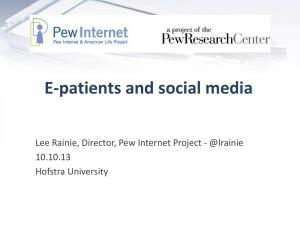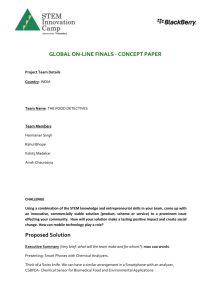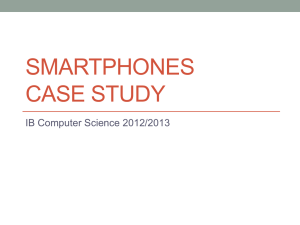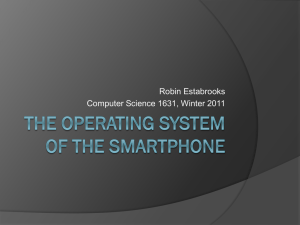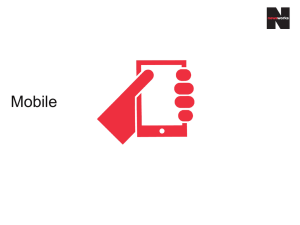D30 – The Next Generation: Post Millennials
advertisement
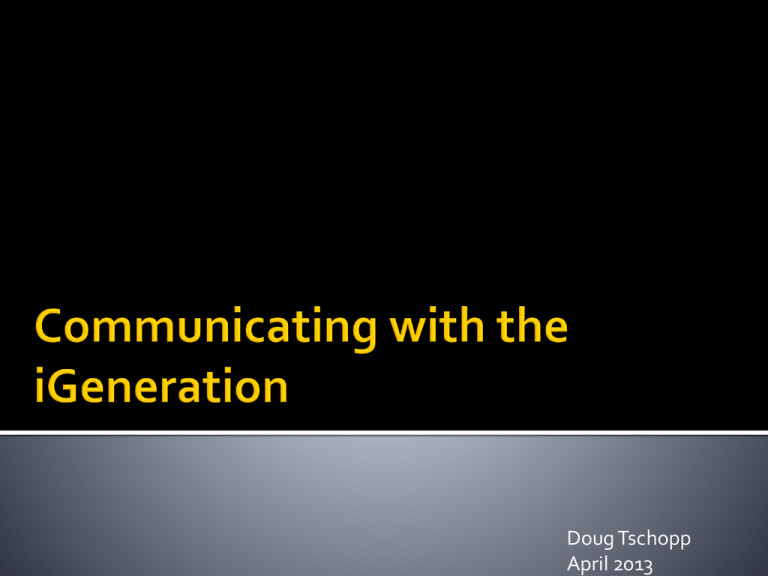
Doug Tschopp April 2013 The Past What is a Generation? What is new? iGeneration Baby Boomer Generation 1946-1964 Generation X 1965-1982 Millennials 1982-2003 iGeneration 2003+ Optimistic Idealist Communicative Value good education Influenced by technology Desire instant gratification Value family Flexible Diverse Redefined tradition and religion Influenced by the recession Desire immediate gratification Location in history Beliefs and behaviors Perceived membership Family Life Gender Roles Important Institutions Politics Religion Culture Lifestyle Views on the Future (Howe and Strauss 2000) Generations are becoming shorter Why? They have always lived in cyberspace, addicted to a new generation of “electronic narcotics.” They can’t picture people actually carrying luggage through airports rather than rolling it. Michael Jackson’s family, not the Kennedys, constitutes “American Royalty.” Probably the most tribal generation in history, they despise being separated from contact with their similar-aged friends. They watch television everywhere but on a television Before they purchase an assigned textbook, they will investigate whether it is available for rent or purchase as an e-book. Who They Are How They Communicate What the Future May Hold Who are they? What does the “I” represent”? Internet-savvy Comfortable with technology Great multi-taskers or task switchers Favor individualization and all things customized Of interest Nielsen Company (Educational Leadership 2011) ▪ The average teenager sends 3,399 texts a month ▪ 6 messages every hour that he or she is not sleeping Of interest Rewired: Understanding iGeneration and How They Learn ▪ 35% of children ages 6mo to 3 years have TV in their room ▪ 10% of children ages 4-8 have a computer in their bedroom ▪ 51% of children ages 9-12 have cell phone iGens hold more shopping power Spending $239 billon annually Influential in family purchases Rely on parents for money “WWW” ▪ Whatever ▪ Whenever ▪ Where ever Rewired: Understanding iGeneration and How They Learn Early introduction to technology Adeptness at multitasking or switching tasks Desire for immediacy Ability to use technology to create a vast array of content Fears Not getting good grades Not having enough money Appearance Hopes A+ A+ A+ A+ A+ A+ Become a millionaire Have positive impact on society 37% of teens in the U.S. have a smartphone. Among teens with a smartphone, however, 50% access the Internet primarily via the mobile device. 25% of those aged 12-17 access the Internet "primarily" via a cell phone or smartphone. Girls are more likely than boys to rely on their smartphone as their primary Internet access device. Pew Internet Teens and Privacy Management Survey July 26-September 30, 2012 Pew Internet and American Life Project 2011 Use social networking sites such as Facebook, Myspace, and Twitter Use video chat resources such as Skype or iChat Record and upload videos What’s Next? Use technology to convey content Utilize video outside of class Free up time to analyze, synthesize and assimilate material Are we out of step? Questions?

